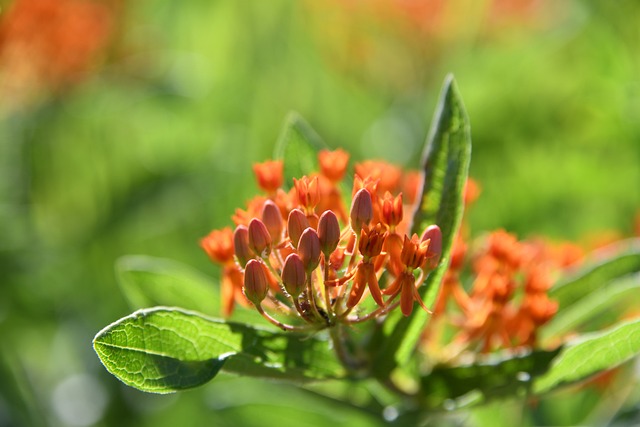2023 marked a significant milestone for cannabis legislation in Kansas with the recognition and legalization of THCA, a non-psychoactive cannabinoid found in the cannabis plant. THCA is celebrated for its potential health benefits, including pain relief and anti-inflammatory properties, and is now legally available in Kansas. Consumers can access THCA flowers without the psychoactive effects associated with THC, as long as they adhere to the state's regulations, such as the 0.3% THC threshold on a dry weight basis. This progressive step reflects Kansas's commitment to exploring cannabinoid-rich products for therapeutic purposes and contributes to the growing body of research on their efficacy. The state's move sets a precedent for further investigation into cannabis compounds, with an emphasis on THCA as a legal option for wellness within its borders. The legal status of THCA in Kansas positions it as a key player in the expanding cannabinoid market, offering residents a viable natural alternative for health and wellness without psychoactive effects.
Explore the burgeoning realm of cannabinoids with our deep dive into THCA flower benefits, now legally accessible in Kansas. This article sheds light on the unique properties of THCA, a non-psychoactive compound found in the cannabis plant, and its potential health advantages. From its natural occurrence to its distinct differences from THC, we unravel the science behind THCA’s therapeutic benefits, including its anti-inflammatory effects, stress relief properties, neuroprotective potential, and gastrointestinal support. As Kansas embraces the legal landscape for such floral forms, understanding the entourage effect and responsible consumption practices becomes increasingly important. Join us as we navigate through cultivation, market selection, and safety guidelines to harness the full spectrum of THCA flower benefits.
- THCA Flower Benefits Unveiled: The Emergence of Legal Cannabis in Kansas
- Understanding THCA: The Natural Phenol in the Spotlight
- THCA vs. THC: Deciphering the Differences and Their Implications
- Therapeutic Properties of THCA Flower: A Closer Look
- Anti-Inflammatory Effects: How THCA Flower Can Ease Chronic Pain
- Anxiety Relief: The Role of THCA in Managing Stress and Anxiety
THCA Flower Benefits Unveiled: The Emergence of Legal Cannabis in Kansas
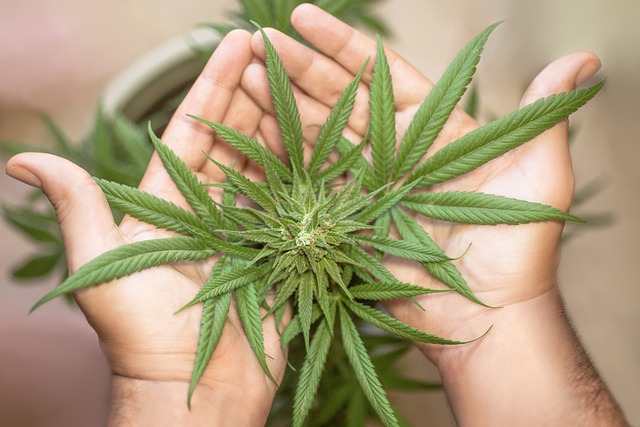
2023 marked a pivotal moment for cannabis enthusiasts and advocates in Kansas as THCA, or Tetrahydrocannabinolic Acid, became legally recognized. This non-psychoactive precursor to THC has garnered attention for its potential therapeutic benefits, including pain relief and anti-inflammatory properties. With the passage of legislation permitting the use of cannabis products containing THCA for medicinal purposes, Kansas has opened the door to a new chapter in healthcare and wellness. The flower form of THCA, when consumed, can offer a wide array of benefits without the psychoactive effects typically associated with THC-rich products. This legal shift allows consumers to explore the therapeutic potential of THCA flowers, which are known for their high concentration of cannabinoids, particularly THCA, and minimal levels of THC. As the market evolves, Kansas residents have access to these beneficial plants, contributing to the growing body of research on the efficacy and applications of cannabinoid-rich products. This development not only reflects a progressive approach to healthcare but also signals a broader acceptance of cannabis as a legitimate therapeutic option within the state’s legal framework.
Understanding THCA: The Natural Phenol in the Spotlight
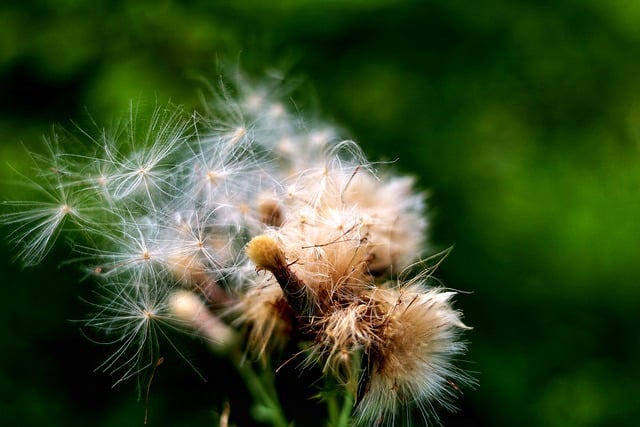
Delta-9 tetrahydrocannabinolic acid, commonly known as THCA, is a natural phenol found in the Cannabis sativa plant that has garnered attention for its potential wellness benefits. While its psychoactive properties are negligible compared to its well-known derivative, THC, THCA has been studied for various health applications due to its interaction with the body’s endocannabinoid system. As of the knowledge cutoff in 2023, THCA’s legal status in Kansas allows for its exploration and use within certain parameters, reflecting a growing acceptance of cannabinoid research and application across the United States. In Kansas, THCA is distinct from other cannabinoids due to its non-psychoactive nature at lower doses, making it an appealing compound for those seeking wellness support without the ‘high’ associated with cannabis use. Research into THCA’s benefits is ongoing, with preliminary studies suggesting potential anti-inflammatory and neuroprotective effects, as well as its role in supporting overall health. This emerging focus on THCA’s properties has led to an increased interest in its extraction and formulation for various wellness products, positioning it as a significant player in the evolving cannabinoid market.
THCA vs. THC: Deciphering the Differences and Their Implications
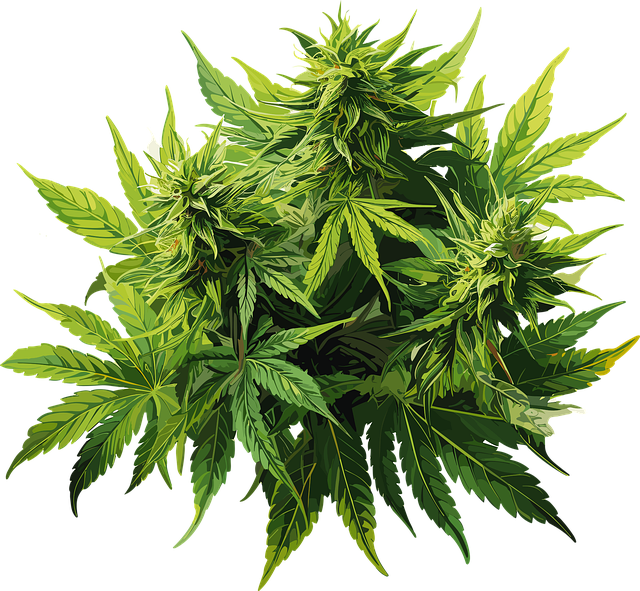
THCA, or tetrahydrocannabinolic acid, is the raw, non-psychoactive precursor to THC, the psychoactive compound found in cannabis that’s well known for its mind-altering effects. While both compounds originate from the same plant and share similar structures, their molecular states and interactions with the human body are distinct. THCA is found in raw cannabis or cannabis that has not been heat-decarboxylated—a process that converts THCA into THC.
The legal landscape regarding these compounds varies by jurisdiction. In Kansas, for instance, certain forms of CBD and THC are legal with varying degrees of restriction, but the legality of growing or possessing raw cannabis containing THCA is a different matter. It’s crucial for consumers and researchers in states like Kansas to understand the legal distinctions between these cannabinoids, as possession of raw cannabis could be permissible while its heated derivative THC may not be. This distinction has significant implications for those interested in the potential therapeutic benefits of THCA, which some preliminary research suggests may offer anti-inflammatory and neuroprotective properties without the psychoactive effects associated with THC. As such, the exploration of THCA’s legal status and its potential health benefits is a topic of growing interest, particularly in states like Kansas where legislative changes are continually reshaping the cannabis landscape.
Therapeutic Properties of THCA Flower: A Closer Look
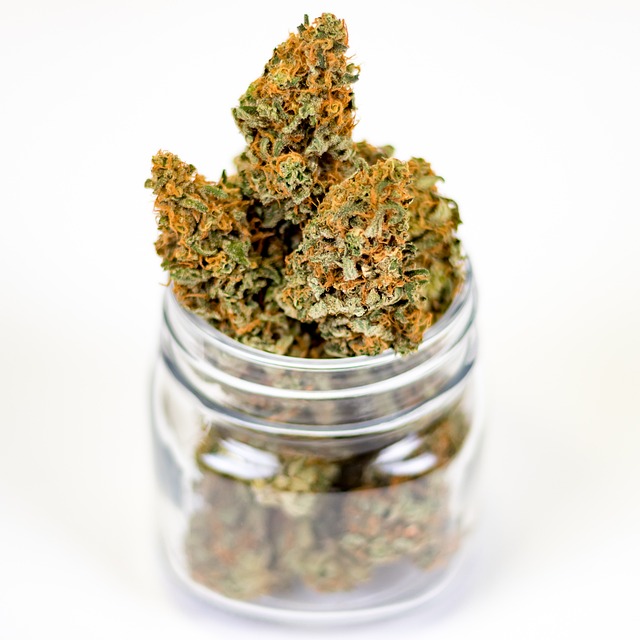
The therapeutic properties of THCA flower, which stands for tetrahydrocannabinolic acid, have garnered attention within the realm of natural medicine. Unlike its psychoactive counterpart THC, THCA is non-psychoactive, making it a valuable option for individuals seeking the health benefits without the high. Preliminary research suggests that THCA may possess anti-inflammatory and neuroprotective effects, which could be beneficial in managing symptoms associated with various conditions. In the context of legality, consumers in Kansas can explore these potential wellness benefits as THCA flowers are deemed legal under state law, provided they contain less than 0.3% THC on a dry weight basis and comply with the Kansas Department of Agriculture’s Industrial Hemp Program regulations. This distinction allows for a new frontier in natural healthcare solutions for residents within the state, emphasizing the importance of understanding local laws when considering the use of hemp-derived products for therapeutic purposes. As research continues to evolve, the potential applications of THCA flower may expand, offering hope and alternative treatment options for those looking to complement traditional medicine with cannabinoid-based therapies.
Anti-Inflammatory Effects: How THCA Flower Can Ease Chronic Pain
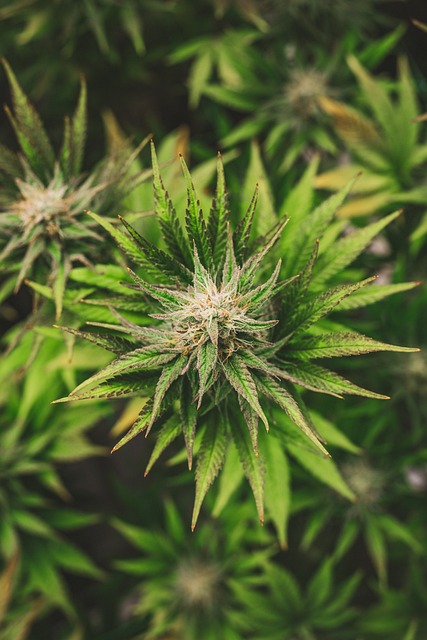
delta-9-tetrahydrocannabinolic acid (THCA) is a non-psychoactive cannabinoid found in the Cannabis sativa plant, which has garnered attention for its potential health benefits. Among these, THCA’s anti-inflammatory properties have been the subject of growing interest, particularly within the context of managing chronic pain. Research suggests that THCA interacts with the body’s endocannabinoid system by binding to both CB1 and CB2 receptors, which are involved in pain regulation. This interaction may help reduce inflammation and alleviate chronic pain without the psychoactive effects associated with delta-9-THC.
In states like Kansas where THCA-rich hemp flowers are legal, consumers have access to a natural alternative for pain relief. The legal status of these products in Kansas allows for the exploration of their therapeutic potential, with many users reporting positive experiences with THCA flower for conditions ranging from arthritis to neuropathy. The anti-inflammatory effects of THCA are believed to be due to its ability to inhibit pro-inflammatory cytokines and enzymes responsible for pain and inflammation, making it a promising area of study for those seeking natural pain management solutions. Users often report that THCA flower helps manage their chronic pain without the side effects often associated with traditional pharmaceuticals. As research continues to evolve, the role of THCA as a therapeutic agent for inflammatory and pain conditions may become more clear.
Anxiety Relief: The Role of THCA in Managing Stress and Anxiety

Delta-9-tetrahydrocannabinol acid (THCA) is a natural compound found in the cannabis plant that has garnered attention for its potential therapeutic properties. Unlike its more famous counterpart, delta-9-tetrahydrocannabinol (THC), THCA is non-psychoactive, making it an appealing option for those seeking the health benefits of cannabis without the “high.” One of the notable wellness applications of THCA is in managing stress and anxiety. Studies suggest that THCA interacts with the body’s endocannabinoid system, a complex cell-signaling system that helps maintain physiological and psychological equilibrium. This interaction may influence mood regulation, potentially offering relief from anxiety symptoms. For individuals residing in Kansas, where the legal status of THCA-rich products is clearer than in some other states—with CBD products derived from hemp being legally available under the 2018 Farm Bill—exploring the benefits of THCA flower for anxiety relief is a growing area of interest and research. The anxiolytic effects of THCA are thought to be attributed to its ability to inhibit the uptake of anandamide, often referred to as the “bliss molecule,” which can enhance mood and reduce anxiety. As such, incorporating THCA-rich flowers into one’s wellness routine could potentially offer a natural approach to managing stress levels and improving overall mental wellbeing for those in states like Kansas where it is legally accessible.
The exploration into the therapeutic potential of THCA flower has illuminated a promising horizon for those seeking natural alternatives for wellness. As evidenced by recent research and legal advancements, such as its status as legal cannabis in Kansas, THCA presents a compelling alternative to its psychoactive counterpart, THC. The distinct benefits of THCA, from its anti-inflammatory properties that offer relief from chronic pain to its capacity to alleviate anxiety, underscore the importance of this natural phenol in addressing various health concerns. As legal frameworks continue to evolve, embracing the potential of THCA flower will likely become a cornerstone of holistic health strategies. The findings presented herein not only unveil the benefits of THCA but also pave the way for further investigation into its applications and the broader implications for healthcare.
